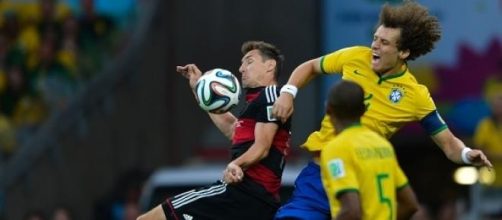Brazilian soccer is looking to science for help as it struggles to come to terms with their national team's humiliating 1-7 defeat at the hands of Germany in last year's World Cup. And it does it with a university professor and world-leading expert from the UK.
Professor Mark Williams, an advisor to the English Institute of Sport and the Premier League and also Head of the Department of Life Sciences at Brunel University London, has been invited by state legislators in Belo Horizonte - by the way, the very scene of the Brazilian team's shocking exit from the tournament!
- to talk on the subject of 'Changing football in Brazil: challenges of renovation'. The invitation comes as a recognition of the world-leading work by the university's Centre for Sports Medicine and Human Performance.
What Prof Williams made clear from the very start of his speech, which was broadcast on Brazilian state television, is that Brazil needs to put science at the heart of its vision for the beautiful game.
"Brazil has given us many of football's all-time greats, but in modern soccer raw talent alone is not enough. Science is key to bringing the World Cup back to Brazil's trophy cabinet", Prof Williams said.
In his speech he highlighted the ways in which other countries are using scientific research to inform talent-spotting and to develop elite athletes' performances.
This has led, for instance, to the introduction of cognitive and neuroscience insights into coaching behaviors in the Premier League, while training increasingly took into account decision-making and anticipation skills during high-pressure games.
He showed how animation and virtual reality technology was creating simulation-based training programmes that sped up how quickly players can learn these skills.
The final issue was talent spotting, with too many boys selected by size and strength over potential. He said that the majority of top players are born later in the selection year, meaning technical ability and game intelligence skills are more important.
Professor Williams proposed policy and structure changes to ensure equal opportunity for all athletes to reach elite levels.

